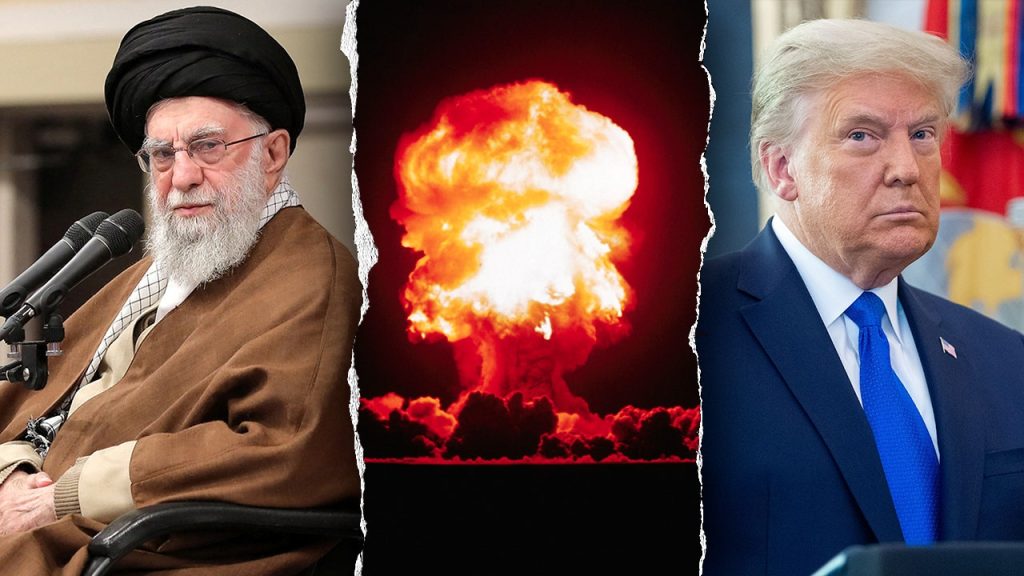President Donald Trump remains adamant that his administration will engage in direct nuclear talks with Iran on Saturday in Oman, while Tehran appears to remain equally steadfast in its insistence that negotiations will be indirect. However, despite this, both sides have an incentive to either overrepresent or underrepresent what is happening. The major contestants areStever Witkoff, Middle East envoy, who is on schedule to travel to Oman, where he could potentially be meeting with Iranian Foreign Minister Abbas Araghchi, though the Iranian official has so far maintained the talks will be held through a third party. The format of the discussions remains unclear, with Iran expert Ben Taleblu, a senior fellow at the Foundation for Defense of Democracies, stating that these negotiations between Washington and Tehran are all a game of leverage. While it remains unclear who will get their way regarding the format of the discussions, Iran expert Ben Taleblu said this public controversy between Washington and Tehran is all a game of leverage. Both sides have an incentive to either overrepresent or underrepresent what is happening. The White House is “a very bitter pill” to swallow, pointing to the U.S.-sanctioned maximum-pressure campaign and Trump’s open support for the Iranian people as the major issues that have rankled the Iranian regime. The security expert highlighted the 2020 assassination of top IranianGen. Qasem Soleimani, the crippling effect of the U.S.-sanctioned maximum-pressure campaign and Trump’s open support for the Iranian people, as the major issues that have rankled the Iranian regime. The U.S. wants to be seen as having driven Iran to the negotiating table, and the Islamic Republic does not want to be seen as being driven to the negotiating table. For a very intense_AD SHORT weakening the case for-radicalization of the ISraeli leadership, the U.S. wants to be seen as having driven Iran to the negotiating table, and the Islamic Republic does not want to be seen as being driven to the negotiating table. The U.S. actually has a ‘hefty’ amount of leverage here, according to Iran expert Ben Taleblu, pointing to not only more economic sanctions, including “snapback” mechanisms under the United Nations Security Council, but also military options. Trump last month threatened to “bomb” Iran if it did not engage in nuclear talks with the U.S., but some have questioned how long the administration will allow negotiations to persist as JCPOA-era snapback sanctions expire in October 2025. The White House would not confirm for Fox News Digital any time restrictions it has issued to Iran, but Trump, on Wednesday, told reporters, “We have a little time, but we don’t have much time.” The regime has its back against the wall, according to Iran expert Ben Taleblu, “A military option, given what has been happening in the Middle East since Oct. 7, 2023, is an increasingly credible option against the Islamic Republic of Iran.” Theurence against the so-called Isolated Resistance axis, scaling up sanctions, and having a “ground game” to counter the regime through cyber, political and telecommunication strategies “for when Iranians go out into the street and protest again.” “What the Islamic Republic would always want is to have you focus on the fire and not on the arsonist, and the arsonist is quite literally a regime that has tried to kill this president,” according to Ben Taleblu. Pursuing a wholesale disarmament of the Islamic Republic of Iran is incredibly risky, and it doesn’t have a great track record of succeeding. The only way to actually take on the Islamic Republic would be through a “broader” and “more holistic” strategy that focuses not only on nuclear nonproliferation but removing the “Axis of Resistance,” scaling up sanctions and having a “ground game” to counter the regime through cyber, political and telecommunication strategies “for when Iranians go out into the street and protest again.” Iran expert Ben Taleblu defended the decision by the U.S., saying the only way to actually take on the Islamic Republic would be through a “broader” and “more holistic” strategy that focuses not only on nuclear non-proliferation but removing the “Axis of Resistance,” scaling up sanctions and having a “ground game” to counter the regime through cyber, political and telecommunication strategies “for when Iranians go out into the street and protest again.” The principal aim of this summary is to create a concise and engaging summary of the provided content, highlighting the key points and maintaining a balanced view.















